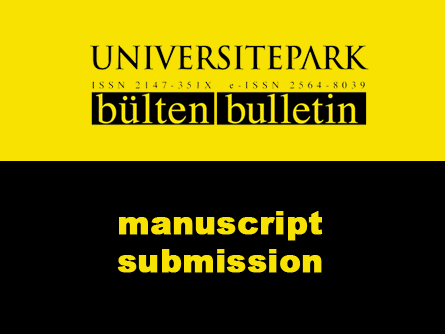An Investigation of Performance-Based Assessment at High Schools
pp. 53-65 | Published Online: December 2016 | DOI: 10.22521/unibulletin.2016.512.5
Ozkan Kirmizi, Funda Komec
![]() Full text PDF |
2912 |
2517
Full text PDF |
2912 |
2517
Abstract
The current study was undertaken in order to investigate teachers’ and students’ perceptions of performance-based assessment in English lessons at Turkish high schools. The study employs both a qualitative and a quantitative approach. The participants of the study were 20 high school teachers and 124 high school students. In order to collect qualitative data, semi-structured interviews were conducted with the teachers; and for quantitative data, a questionnaire was administered to the students. According to the qualitative data, teachers in general complain about problems in application, lack of time, and lack of effort on the part of students who use the Internet improperly. The quantitative data indicates that the most preferred method on the part of students is exams, and that students find exams the most effective testing method, enabling them to demonstrate their language potential. In addition, performance-based assessment is not considered fair by either teachers or students. Teachers expressed concerns about evaluating performance tasks properly.
Keywords: performance-based assessment, exams, participation
ReferencesAcar, M., & Anil, D. (2009). Sınıf ogretmenlerinin performans değerlendirme surecindeki degerlendirme yontemlerini kullanabilme yeterlikleri, karsılastıkları sorunlar ve cozum onerileri. TÜBAV Bilim Dergisi, 2, 354-363.
Arı, A. (2010). Öğretmenler Göre Proje ve Performans Görevlerinin Uygulanmasında Karşılaşılan Sorunlar. Elektronik Sosyal Bilimler Dergisi, 9, 34 (32-55).
Aykac, N., & Basar, E. (2005). İlköğretim sosyal bilgiler dersi eğitim programının değerlendirilmesi: Eğitimde yansımalar. Paper presented at the VIII. Yeni İlköğretim Programlarını Degerlendirme Sempozyumu. Erciyes Üniversitesi ve Tekışık Araştırma geliştirme Vakfı. Kayseri.
Bachman, L. (2002). Some reflections on task-based language performance assessment. Language Testing, 19, 453-476.
Bertrand, J. E. (1994). Student assessment and evaluation. In B. Harp (Ed.), Assessment and evaluation for student centered learning (pp. 27-45). Norwood, MA: Christopher-Gordon.
Blanche, P. (1988). Self-Assessment of Foreign Language Skills: Implications for Teachers and Researchers. RELC Journal, 19, 75-96.
Brooks, L. A. (1999). Adult ESL Student Attitudes Towards Performance-Based Assessment (Master’s Thesis). Department of Curriculum, Teaching and Learning Ontario Institute for Studies in Education, University of Toronto.
Brown, J.D. (2004). Performance Assessment: Existing Literature and Directions for Research. Second Language Studies, 22(2),91-139.
Brown, J.D., & Hudson, T. (1998). The alternatives in language assessment. TESOL Quarterly, 32(4), 653-675.
Büyüköztürk, Ş., Kılıç-Çakmak, E., Akgün, Ö. E., Karadeniz, Ş., & Demirel, F. (2012). Bilimsel araştırma yöntemleri Scientific research methods (extended 11th edition). Ankara: Pegem Akademi.
Coşkun, E., Gelen, İ., & Kan, M. O. (2009). Türkçe dersinde performans ödevleri konusunda öğretmen ve öğrenci görüşlerinin değerlendirilmesi. Mustafa Kemal Üniversitesi Sosyal Bilimler Enstitüsü Dergisi, 11, 22-55.
Council of Europe. (2001). Common European Framework of Reference for Languages: Learning, teaching and assessment. Cambridge: Cambridge University.
Çiftçi, S. (2010). İlköğretim birinci kademe 4. ve 5. sınıf öğretmenlerinin performans görevlerine iliskin görüşleri. İlköğretim Online, 9(3), 935-951.
Delandshere, G.,& Petrosky, A.R. (1998). Assessment of complex performances: Limitations of key measurement assumptions. Educational Researcher, 27(2), 14-24.
Eisner, E. (1999). The uses and limits of performance assessment. Phi Delta Kappan, 80, 658-660.
Frisby, C. L. (2001). Academic achievement. In L. A. Suzuki, J. G. Ponterotto, & P. J. Meller (Eds.), Handbook of multicultural assessment (2nd ed., pp. 541-568). San Francisco: Jossey-Bass.
Güven, S., & Demirçelik, D. A. (2013). 6. 7. Ve 8. Sınıf öğrencilerinin Performans ödevleri Hakkındaki Görüşleri ve Bu ödevi Hazırlamaya Yönelik Etik Algıları. Uluslararası Sosyal Bilimler Dergisi, 4(13), 83-104.
Güvey, E. (2009). İlköğretim 1-5. Sınıf Öğretim Programında Yer Alan Proje ve Performans Görevlerine İlişkin Öğretmen ve Veli Görüşleri. Eskişehir Osmangazi Üniversitesi Sosyal Bilimler Enstitüsü, Yayınlanmamış Yüksek Lisans Tezi.
Khattri, N., Reeve, A., & Kane, M. (1998). Principles and practices of performance assessment. Mahwah, NJ: Lawrence Erlbaum.
Kim, H. (2004). Task-Based Performance Assessment for Teachers: Key issues to consider. Columbia University Working Papers in TESOL and Applied Linguistics, 4(2), 1-5.
McTighe, J., & Ferrara, S. (1998). Assessing learning in the classroom. Washington, DC: National Education Association.
Pierce, L. V. (2002). Performance-Based Assessment: Promoting Achievement for Language Learners. Center for Applied Linguists (ERIC/CLL News Bulletin), 26(1), 1-3.
Rençber, İ. (2008). Yeni ilköğretim programının uygulanmasında karşılaşılan sorunlara ilişkin müfettiş, yönetici ve öğretmen görüşleri (Konya İli Örneği) (Unpublished Master’s Thesis). Selçuk Üniversitesi Sosyal Bilimler Enstitüsü, Konya.
Wiggins, G. (1998). Educative assessment: Designing assessments to inform and improve student performance. San Francisco: Jossey-Bass.
Yılmaz, M. & Benli, N. (2011). İlköğretim Birinci Kademede Verilen Performans Ödevlerinin Öğretmen Görüşleri Açısından Değerlendirilmesi. Buca Eğitim Fakültesi Dergisi, 30, 250-267.
UNIBULLETIN News!
► New issue coming soon! (Volume 13 Issue 1, 2024)
► Call for Papers
UNIBULLETIN is calling for submissions. Authors are invited to submit papers from the all fields of the Education (General) and Social Sciences (General) in the international context. All submissions should be presented only in English.
